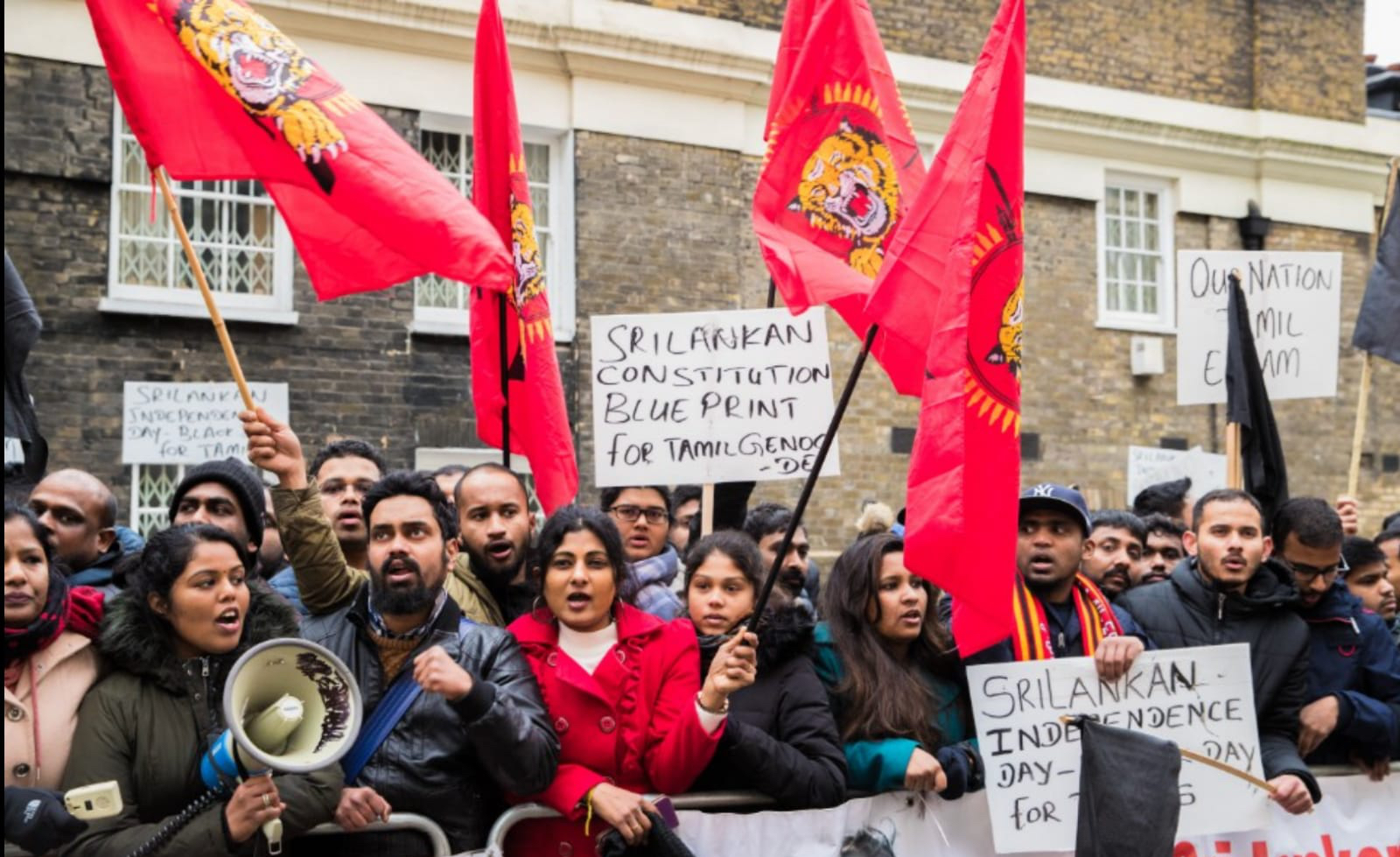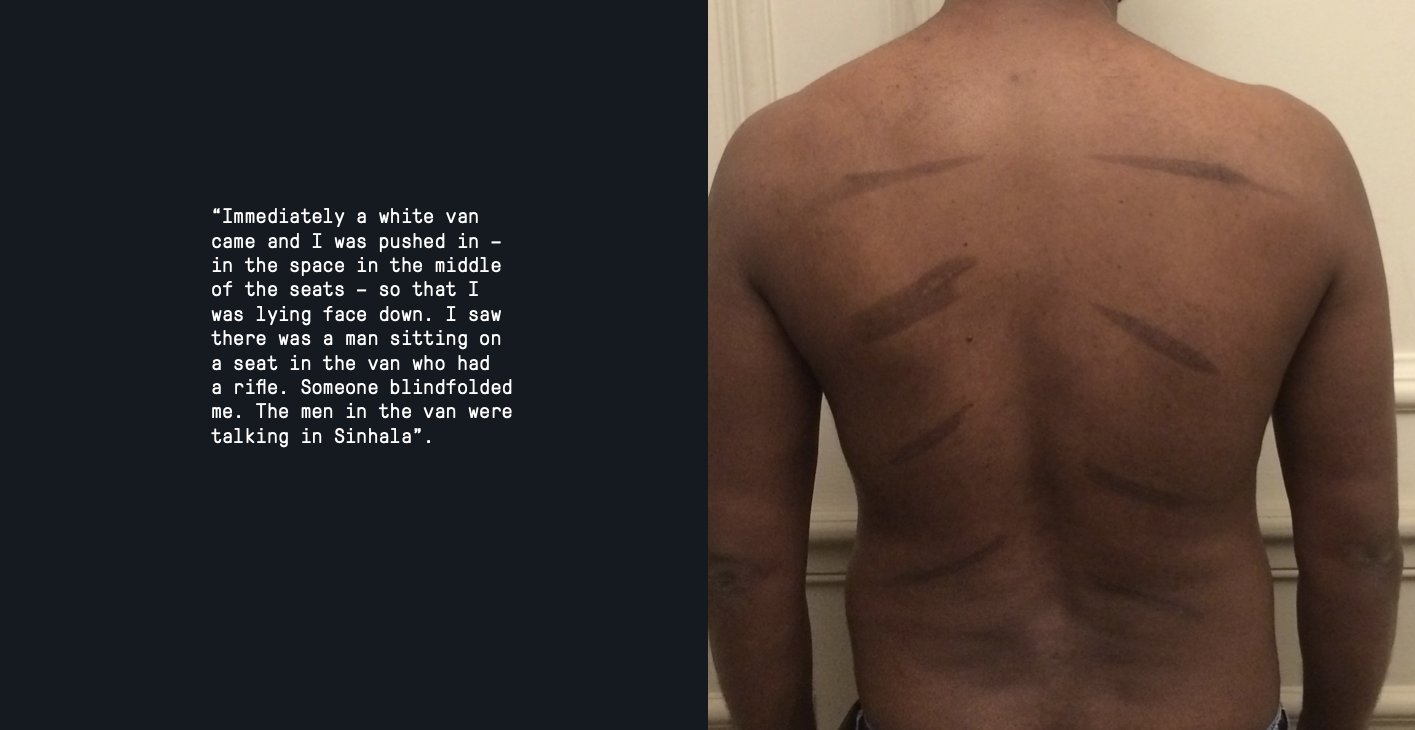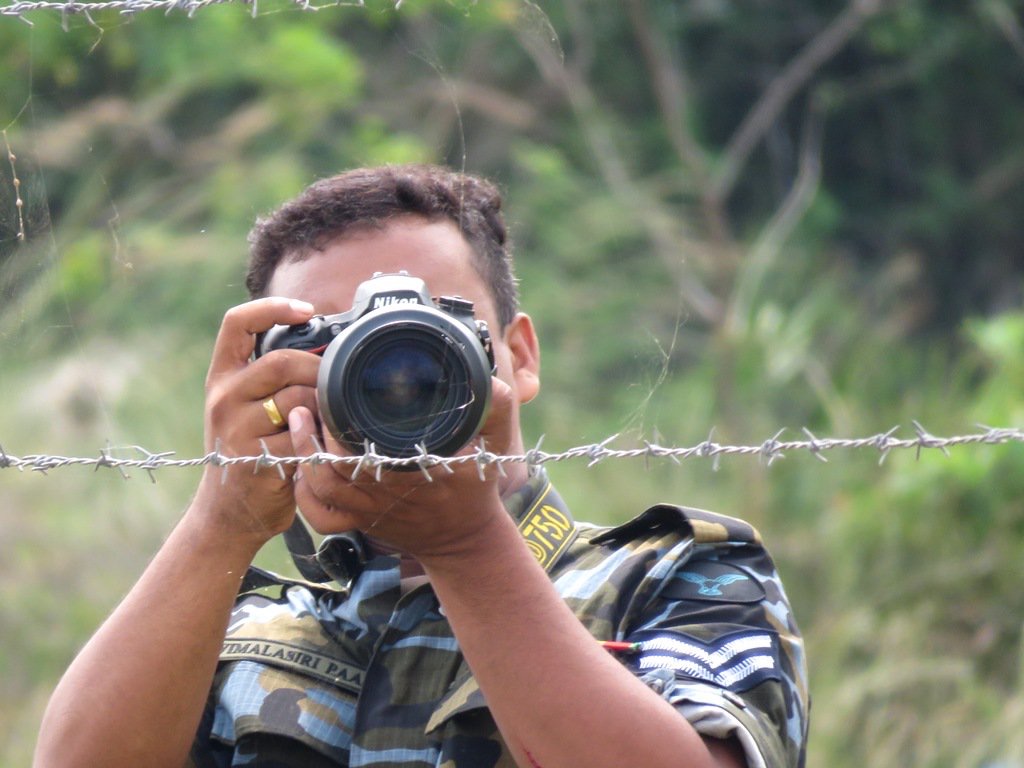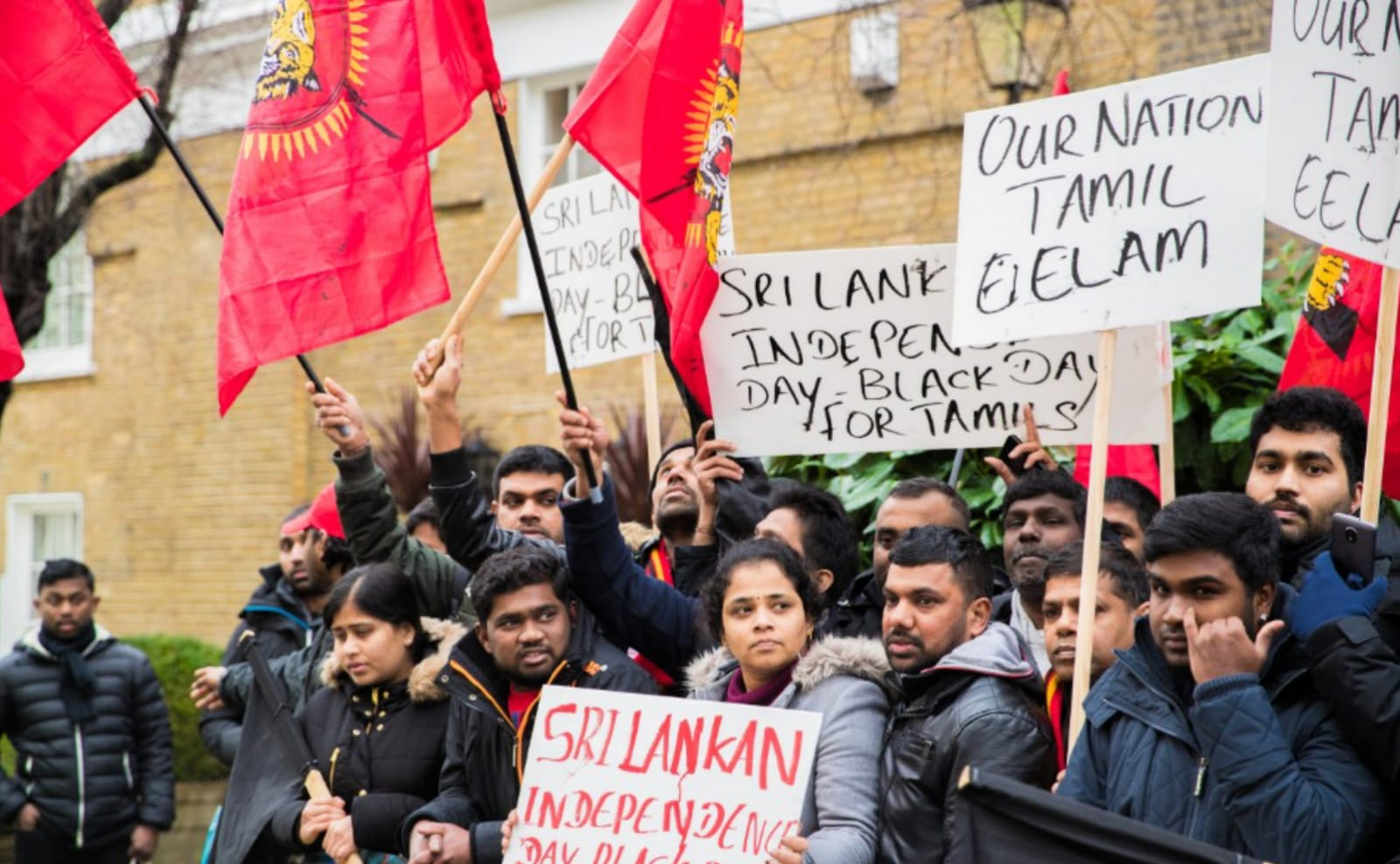 Tamil activists in London February 2019
Tamil activists in London February 2019
Following a landmark Upper Tribunal ruling, the Home Office has been forced to amend its country policy guidance to reflect the threat of torture peaceful Tamil activists face in Sri Lanka.
The new guidance maintains that: “There is a reasonable likelihood that those detained by the Sri Lankan authorities will be subjected to persecutory treatment within the meaning of the Refugee Convention and ill-treatment contrary to Article 3 ECHR”.
It further states that those detained did not require for an individual to “have held a formal position in an organisation, are a member of such, or that their activities have been ‘high profile’ or ‘prominent’. The previous guidance had erroneously maintained that only those with a “significant role” in Tamil activism overseas faced a threat.
The Upper Tribunal’s ruling centred on the asylum appeal of two Tamil refugees in the UK, known as KK and RS. The court recognised the threats of torture they faced and their right to uphold and express a Tamil separatist viewpoint.
Threat of torture
 Image credit: Frances Harrison
Image credit: Frances Harrison
Commenting on those likely to be detained, the Home Office highlighted that journalists, human rights advocates, government critics, and those who had submitted evidence implicating Sri Lanka’s security forces in war crimes, faced a “reasonable likelihood of being detained after their return”.
The guidance also noted that:
“A Tamil female single head of household residing in the former conflict zone of Northern and North-Eastern Sri Lanka may be at risk of sexual abuse and exploitation perpetrated by members of police, military and paramilitary State agents”.
The guidance further disputes accusations of asylum seekers self-inflicting injuries noting, "injuries which are self-inflicted by proxy are likely to be extremely rare".
According to the International Truth and Justice Project, there have been 178 documented credible cases of torture from 2015-2018, excluding 22 individuals abroad who reported torture following the UN special investigation. Since Gotabaya Rajapaksa came to power in late 2019, at least 5 cases have been documented abroad of abduction, torture, and sexual violence of Tamils. The ITJP notes, "this likely represents the tip of the iceberg".
Surveillance regime
 Sri Lankan soldiers photographing Tamil protestors as part of surveillance, 2017
Sri Lankan soldiers photographing Tamil protestors as part of surveillance, 2017
The guidance further highlights that the Government of Sri Lanka (GoSL), “continues to operate an extensive intelligence-gathering regime in the United Kingdom”.
This regime “utilises information acquired through the infiltration of diaspora organisations, the photographing and videoing of demonstrations, and the monitoring of the Internet and unencrypted social media”.
During the Tribunal, analyst Dr Chris Smith, maintained that:
“The Sri Lankan authorities, therefore, possess the wherewithal to identify and detain members of the Tamil diaspora who they perceive to be of potential or existing adverse interest. Once identified they have the legal right under the PTA to detain almost whomsoever they wish. Once detained, Tamils associated with the diaspora are vulnerable and at risk of extreme ill-treatment that will violate their civil liberties and their human rights”.
The details of Tamil diaspora members possessed by the Sri Lankan state is thought to go far beyond the proscribed list of individuals and organisations that Colombo has publicly published. Earlier this year the Sri Lankan government has a wide-ranging proscription of hundreds of individuals and several Tamil diaspora organisations, as the regime continued to crack down on Tamil civil society and activists. According to the gazette notification, a number of Tamil organisations and over 300 individuals were re-enlisted under the state’s much-criticised terrorist designation law.
The Home Office policy guidance further recognised that those not on Sri Lanka's watch list, but still of interest, would “be monitored by the authorities in their home area or wherever else they may be able to resettle”.
The HJ (Iran) principle

British Tamil protestors in London, 2019
The Home Office further upheld the HJ (Iran) principle which maintained “a person should not be forced to conceal their sexual identity in order to avoid persecution”; the principle was extended to cover political opinions in the RT (Zimbabwe) case.
In their guidance, the Home Office recognises that:
“If the individual would engage in the expression of separatist views and these were to become known, it is reasonably likely that they would be detained, with the consequential risk of persecution within the meaning of the Refugee Convention and ill-treatment contrary to Article 3 ECHR”.
Therefore, immigration authorities must now take into consideration the threats of torture and ill-treatment posed to Tamil asylum-seekers deported to Sri Lanka.
Read the full country policy guidance here.


